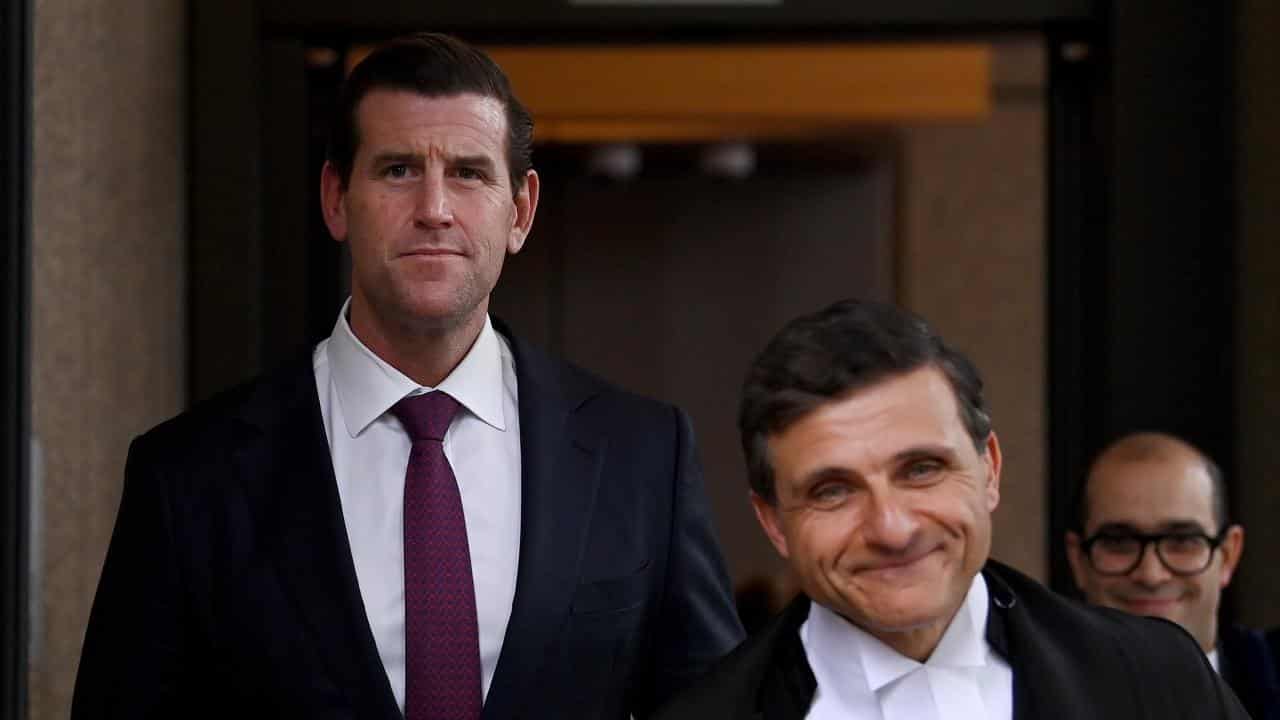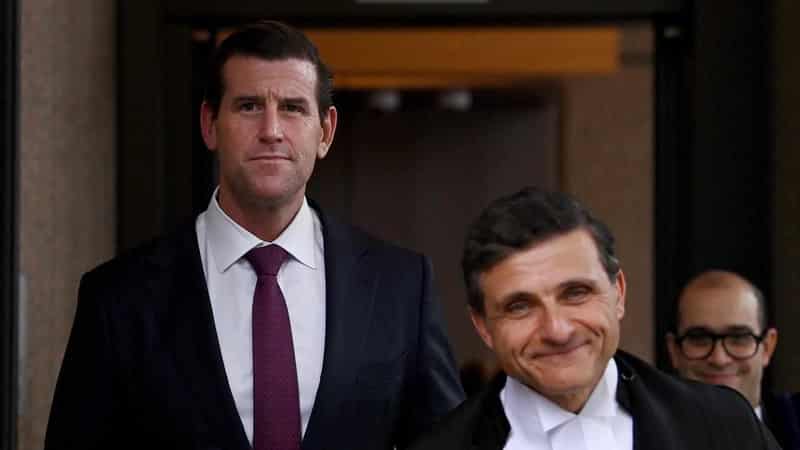
Former SAS soldier Ben Roberts-Smith must have known he would lose when he sued newspapers that reported his alleged involvement in four murders, a court has heard.
The decorated veteran tried to conceal the truth of his alleged war crimes and should be made to pay after rejecting a settlement offer, the publishers' barrister Nicholas Owens SC told the Federal Court on Monday.
The newspapers and Mr Roberts-Smith have been arguing over the cost of the long-running defamation trial, which took 110 days to hear.
Nine-owned titles The Sydney Morning Herald and The Age, as well as The Canberra Times, reported allegations the SAS soldier was involved in four murders while deployed in Afghanistan.
Justice Anthony Besanko ruled in June those war crimes allegations were substantially true, a decision Mr Roberts-Smith is appealing.
He has accepted he should pay the newspapers' costs for the period after he rejected a settlement offer in March 2020.
The newspapers want him to pay from an earlier date, from June 2019.
Estimates have pegged the cost for the opposing parties at exceeding $25 million.
Not everything reported by the newspapers held up in court, just the most defamatory claims.
The judge’s finding that Mr Roberts-Smith was involved in four murders meant he should pay the newspapers' costs after making them prove it in court, Mr Owens said.
“It must be the case, inevitably and necessarily, that the applicant commenced these proceedings and continued these proceedings knowing those imputations sued upon were in fact true,” he said.
Mr Owens added that Mr Roberts-Smith sued to conceal the truth and if the newspapers had failed to prove their claims he would have succeeded in that pursuit with the full authority of the court’s judgment.
In his pursuit, Mr Roberts-Smith engaged in a deliberate pattern of conduct necessitated by launching the lawsuit, giving false evidence and colluding with other witnesses to do so, the barrister said.
Mr Roberts-Smith's barrister, Arthur Moses SC, said his client had no other choice than to launch litigation and it was not doomed to fail.
The SAS soldier was put in an “impossible predicament as a citizen” as the reports ruined his reputation and trashed his presumption of innocence on serious allegations he had not been criminally charged over, Mr Moses said.
Mr Roberts-Smith tried to prevent the ongoing publication of the allegations, failed and then launched the long-running and ultimately unsuccessful defamation action.
Mr Moses said the media could have been in contempt of court for reporting the allegations before a criminal court with a higher standard of proof delivered judgment in the event Mr Roberts-Smith was charged.
Mr Owens said there was no suggestion Mr Roberts-Smith should not remain entitled to the criminal presumption of innocence but reiterated he should pay the costs of continuing the civil action he brought after rejecting the earlier settlement.
The judge reserved his decision to the "near future".
Lifeline 13 11 14
Open Arms 1800 011 046









